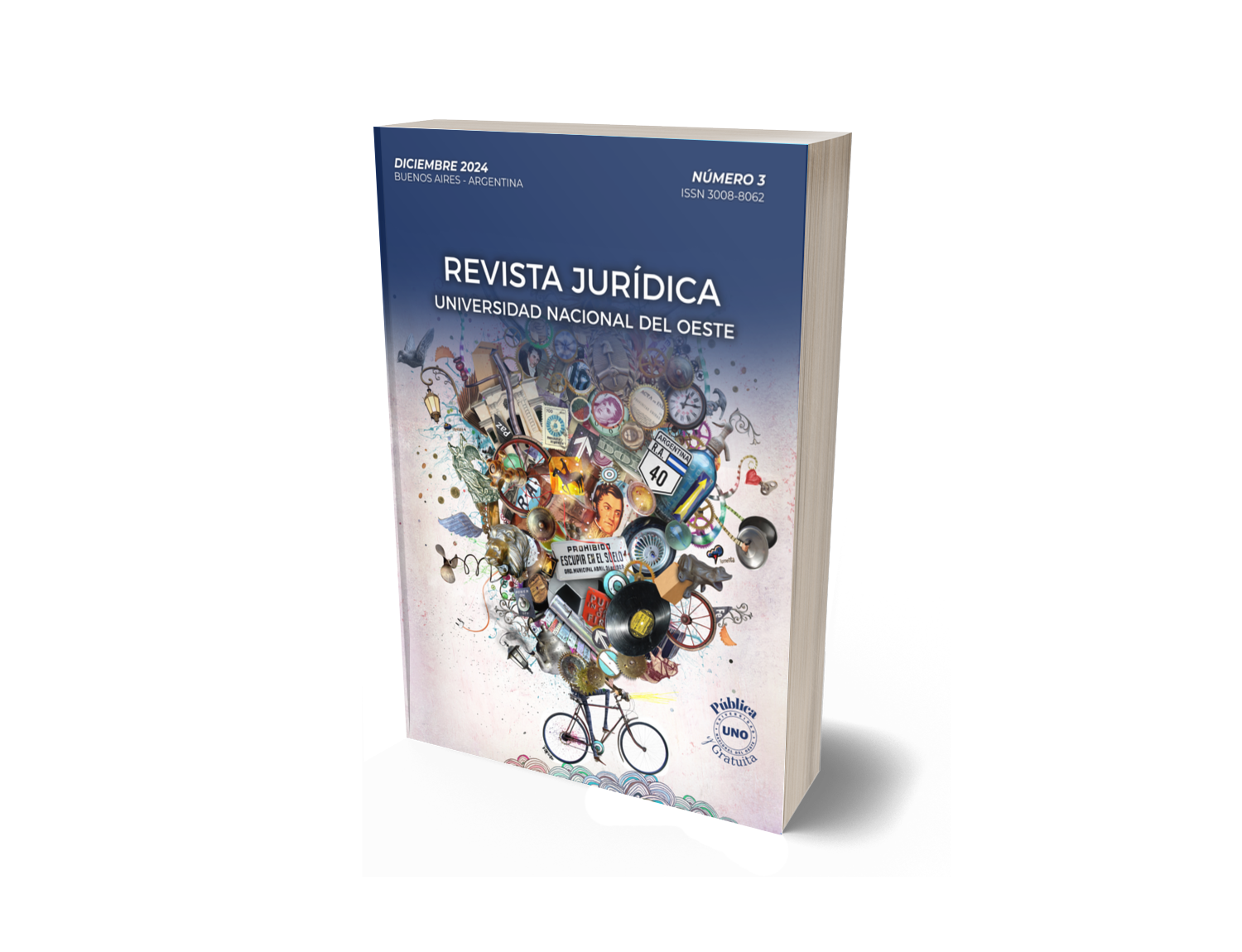Prologue
DOI:
https://doi.org/10.64894/fwx51538Abstract
It is a great joy to be able to write a prologue for the Legal Journal of the National University of the West, a university that creates a space of excellence for young people in the region, offering career opportunities in areas essential to the residents of our province.
The existence of this publication—especially in these times—is truly remarkable from two perspectives. First, simply glancing at the table of contents and finding more than twenty articles of historical, contemporary, and social relevance related to human rights and emerging rights reveals that these issues go beyond the scope of a typical journal. This allows us to envision an encyclopedic approach within the framework of law.
This connects directly to the second point I wish to highlight, taking advantage of the reflective space that prologues offer: the immeasurable value—beyond any monetary calculation—of access to public and free university education.
In this regard, the times we are living in remind me of when, after one of the darkest nights in our history, we helped create the Common Basic Cycle (CBC) at the University of Buenos Aires. Back then, criticism was rampant, and the constant, resounding questions were: How is it possible for so many people to enroll? How can we ignore the fact that a large percentage will drop out after one or two semesters?
The CBC was designed as a general education stage so that students wouldn’t have to decide their professional path from the very beginning. We had to consider that many years of proscription had passed, and a new phenomenon was emerging—enabled by the recognition of rights that only democratic governments can provide—which positively disrupted enrollment patterns: the mass inclusion of women in universities.
It was a new era, but we had to uphold the fundamental pillars of Argentine education, which has always been a source of national pride. That’s why our top priority was to accommodate the large number of applicants and rely on the collaboration of excellent professors and professionals returning to the country after years of exile.
We worked selflessly to serve over 200,000 enrollees.
The main criticism was the dropout rate. Many were already working and wanted to see if they could recover something they had lost. Even so, we are convinced that more important than the dropout rate was the fact that we opened the doors of university classrooms—even if only for a semester—because education itself is a process of personal development that contributes to building a better society.
The National University of the West is about to celebrate its fifteenth anniversary. Its journal is irrefutable proof of intellectual depth, pluralism, and the significance of unrestricted access to education. To confirm this, one need only read it.
Thank you very much for allowing me to contribute the prologue to this issue.
Downloads
Downloads
Published
Issue
Section
Categories
License
Copyright (c) 2024 Hilda Kogan (Autor/a)

This work is licensed under a Creative Commons Attribution-NonCommercial-ShareAlike 4.0 International License.





